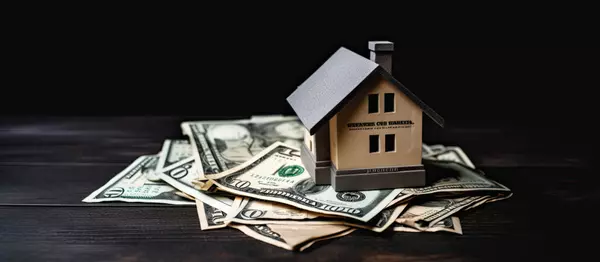Upgrading Your Home in a Rising Market: Tips and Strategies for Homeowners

If you're a homeowner, you're likely to have considered upgrading your home to keep up with the rising market. Investing in renovation projects can increase your property's value, which can be advantageous when you eventually decide to sell. Additionally, home upgrades can enhance your living experience and make your space more functional and enjoyable. In this blog post, we'll explore the top tips and strategies for upgrading your home in a rising market. Prioritize Energy Efficiency and Sustainability One of the most beneficial upgrades you can make to your home is to improve its energy efficiency. Consider investing in solar panels, a smart thermostat, or high-efficiency appliances. These upgrades can help you save money on energy bills over time and make your home more environmentally friendly. You can also add insulation, replace windows, or upgrade your HVAC system to boost your home's energy performance. Add Curb Appeal Boosting your home's curb appeal is an excellent way to increase its value. Some simple upgrades you can make to your home's exterior include painting the shutters, upgrading the front door, adding landscaping, or installing outdoor lighting. You can also invest in a new roof or siding to give your home a fresh look. Upgrade Your Kitchen and Bathroom Upgrading your bathroom and kitchen can be a great way to add value to your home. Consider upgrading to modern fixtures, adding a fresh coat of paint, and replacing outdated appliances. You can also install new countertops, cabinets, and flooring to improve your living experience. These upgrades can be expensive, but they can significantly boost your property's value. Finishing the Basement If you have a basement in your home, finishing it is an excellent way to increase your living space. Consider adding a guest room, a home theater, or an office in the basement area. This upgrade can significantly boost your home's value and provide you with additional living space that you can use as per your convenience. Upgrade Your Home Security Investing in home security measures can give you peace of mind and increase your home's value. You can install a new security camera system, add motion-activated lighting, or upgrade your locks to improve your home's security. These upgrades can make your home more attractive to potential buyers and renters. Upgrading your home is an excellent way to add value to your property and enhance your living experience. Prioritizing energy efficiency, adding curb appeal, upgrading the kitchen and bathroom, finishing the basement area, and improving your home security can significantly increase your property's value. Whether you plan to sell your home eventually or want to enjoy your improvements, upgrading your home in a rising market is a smart investment decision. With these tips and strategies, you can make the most of your investment and boost the value of your home. Contact Shawn Wilmoth REALTOR® today for help finding exactly what you're looking for. www.shawnwilmoth.com
Read MorePros and Cons of Refinancing Your Home

Refinancing your home can be a great way to save money and reduce your monthly mortgage payments. However, it's not always the right choice for everyone. Before you decide to refinance your home, it's important to understand the pros and cons. In this blog post, we'll walk you through everything you need to know about refinancing your home and help you make an informed decision. 1. What is Refinancing? Refinancing involves taking out a new mortgage to replace your existing one. This can help you lower your interest rate, reduce your monthly payments, and save money over the life of your loan. Refinancing can also help you access your home's equity, which you can use to pay off debt, make home improvements, or invest in other areas. 2. The Pros of Refinancing Your Home There are several benefits to refinancing your home, including: - Lower Interest Rates: If the current interest rates are lower than when you first took out your mortgage, refinancing can help you save money on your monthly payments and reduce the total amount of interest you pay over the life of your loan. - Home Equity: Refinancing can help you access your home's equity, which you can use to pay off debt, make home improvements, or invest in other areas. - Reduced Monthly Payments: If you're struggling to make your monthly mortgage payments, refinancing can help you reduce your monthly payments and make them more manageable. - Change Loan Terms: Refinancing can help you switch from an adjustable-rate mortgage to a fixed-rate mortgage, which can provide greater stability and predictability for your monthly payments. 3. The Cons of Refinancing Your Home While refinancing can offer a number of benefits, there are also some potential downsides to consider: - Closing Costs: Refinancing typically involves paying closing costs, which can add up to thousands of dollars. Before you make the decision to refinance, be sure to carefully consider whether the potential savings will outweigh the costs. - Extended Loan Terms: Refinancing can lead to a longer loan term, which could mean paying more in interest over the life of the loan. It's important to run the numbers and consider the overall impact of extending your loan term. - Qualification Requirements: Refinancing your home requires meeting certain eligibility requirements, such as having a good credit score and adequate income. If you don't meet these requirements, refinancing may not be an option for you. 4. When Refinancing Makes Sense So, when does it make sense to refinance your home? Here are some scenarios: - Lower Interest Rates: If the current interest rates are significantly lower than when you first took out your mortgage, refinancing can help you save money on your monthly payments and reduce the total amount of interest you pay over the life of your loan. - Home Equity: If you have significant equity in your home and want to access it to pay off debt or make home improvements, refinancing can help you do so. - Change in Finances: If your financial situation has changed since you first took out your mortgage (e.g., you have a higher income), refinancing can help you take advantage of better terms and lower interest rates. 5. When Refinancing Isn't the Right Choice There are also times when refinancing isn't the best option, such as: - High Closing Costs: If the closing costs associated with refinancing are high, it may not be worth it to refinance your home. - Short Timeframe: If you plan to sell your home in the near future, refinancing may not be the best choice, as you might not recoup the costs associated with refinancing. - Poor Credit: If your credit score has dropped since you first took out your mortgage, refinancing may not be an option as you may not qualify for a lower interest rate. Refinancing your home can be a great way to save money, reduce your monthly payments, and access your home's equity. However, it's important to carefully consider the pros and cons before making the decision to refinance. By weighing the potential benefits and drawbacks, you can make an informed decision that's right for your unique financial situation. Contact Shawn Wilmoth REALTOR® today for help finding exactly what you're looking for. www.shawnwilmoth.com
Read More
Categories
- All Blogs 1000
- Airbnb Realtor 13
- Barndominium 6
- Buying a home 57
- California Buyers 17
- Commercial Broker 2
- Commercial Property 33
- DR Horton Homes 5
- East Tennessee 59
- Experienced Realtor 40
- Experienced Tennessee Realtor 67
- For-Sale By Owner 24
- FSBO 17
- Gatlinburg 30
- Gatlinburg Cabins for Sale 2
- Gatlinburg Rental Homes for Sale 6
- How to pick a realtor 14
- Industrial Property 9
- Invesment Real Estate Gatlinburg 4
- Investment Property Realtor 27
- Knoxville 66
- Knoxville Jobs 1
- Knoxville Zillow Reviews 1
- Listing your home 30
- Mobile Homes 7
- Modular Homes 9
- Morristown 28
- Mortgage 3
- New build homes 24
- Price of Homes in Knoxville 10
- Realtor Blog Feed 3
- Reccomended Tennessee Realtor 48
- Refinancing 2
- Rental Property 7
- Retail Building sites 4
- Retail Land for Sale 3
- Selling a home 19
- Short-Term Rentals 2
- Smithbuilt Homes 2
- Strawberry Plains 1
- Tennessee 39
- Tennessee Lenders 3
- tract homes 1
- Vacant Commercial Land 4
- Warehouse for Sale 1
- Zillow Agent 1
Recent Posts










